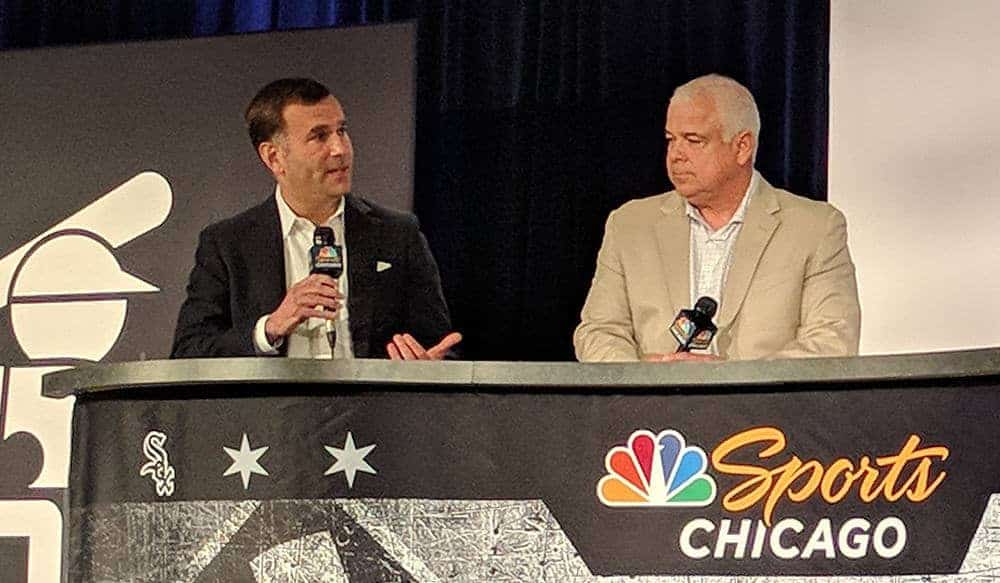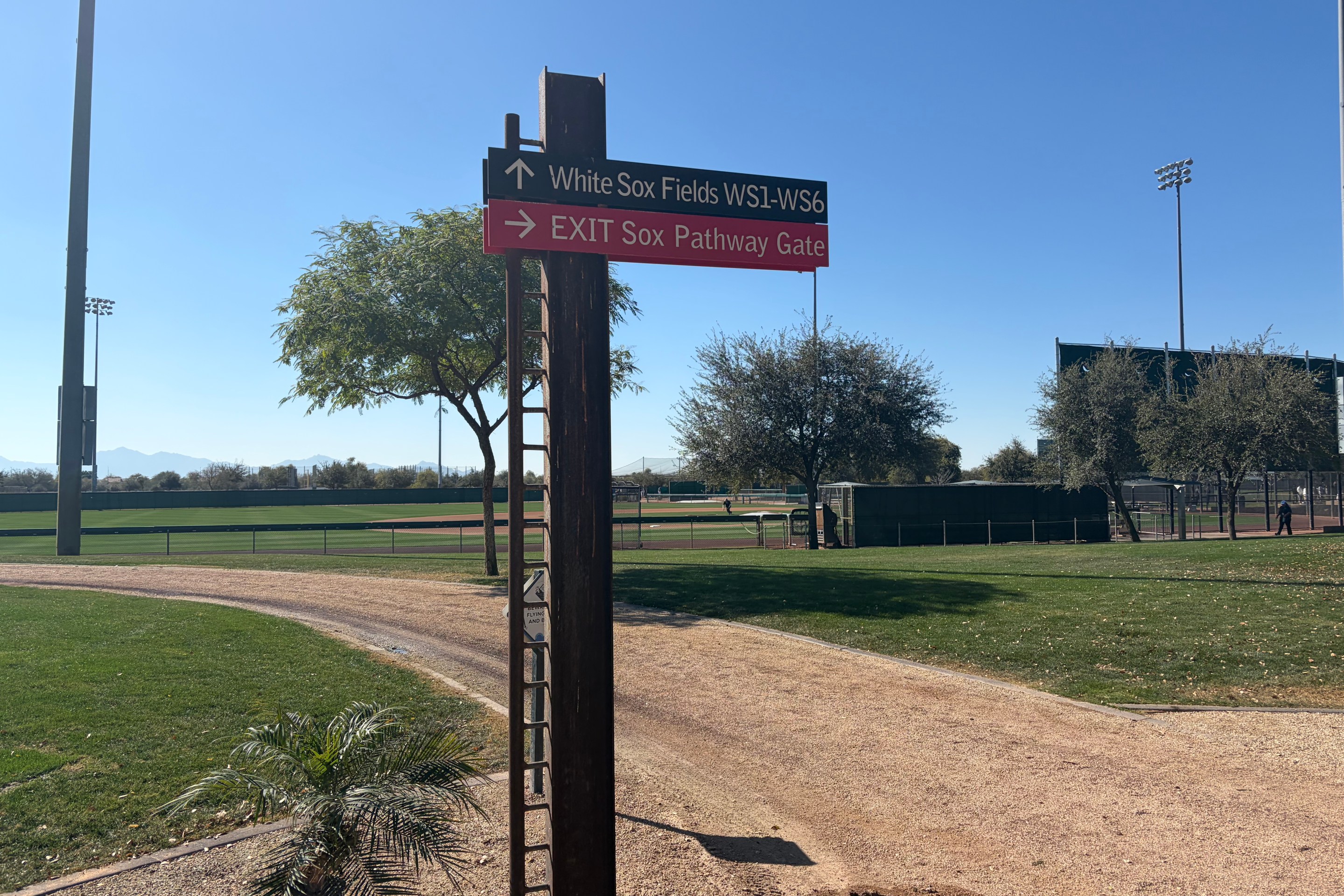Earlier this week during the Cubs' Yu Darvish celebration, Theo Epstein made a comment that stuck in the side of my brain:
“When we acquired Jose Quintana, we made the point then that acquiring him with the great contract he had might allow us at some point to bring another pitcher with him,” Epstein said at the Cubs’ spring training home in Mesa on Tuesday. “We almost felt like we were acquiring one-and-a-half pitchers in that deal, because it would go halfway toward acquiring someone else. I think today is that day when you bring in a Yu Darvish.”
Immediately and masochistically, I thought about the White Sox having four of those contracts, or two extra players in Epstein's view. The Sox failed to even get to .500 with that head start. Missing with such a great margin for error is a big stain on Rick Hahn's record, and I interpret some of his SoxFest humility as though he's smiling with gritted teeth and saying to the person next to him, "Why don't they hate me more...".
Setting self-flagellation aside, it also sounded like a public assessment from Cubs personnel that Quintana had signed for too little. I bet Quintana knows -- and I doubt he cares -- that fans and media had turned his name into a synonym for "huge bargain," but it tends to stick out when somebody on the same payroll does it.
Usually the polite way to talk about great contracts is by focusing on the stability such a signing generates, which has the benefit of being both true and something that appeals to the player for priorities personal and professional. Here, seeing Epstein effectively say, "We used money Quintana didn't capture and directed it toward another great pitcher" is a little blunter, a degree lower than Jeff Samardzija politely but firmly regarding the idea of signing a contract extension as harmful to his peers.
This context seems worth keeping in mind, as characterized in a comment by karkovice squad on Patrick's offseason grades:
Also seems like the possibly new file and trial arb strategy might have deserved some more comment. Especially since it might be accompanied by a shift in team and player willingness to negotiate extensions which was a particular strength for the front office that enabled rebuild 2.0.
Indeed, Yolmer Sanchez and Avisail Garcia became the first White Sox to go to arbitration hearings since 2001, and both did so over six-figure sums. Sanchez pleasantly deflected a question about it, and I haven't seen a (no-)comment from Garcia on the matter, but here's Marcus Stroman serving as a reminder of the way these things can make bad blood boil:
https://twitter.com/Beezersun/status/964205403104948224
(Stroman deleted the tweet. Tim Anderson might have something to say about Stroman's alleged "thick skin.")
Hahn said that he talked with Sanchez and Garcia and said it wouldn't affect the way the Sox viewed them, and on the players' side, they both reported to spring training before they had to.
Yet Hahn also sounded miffed, irked and maybe even rankled by the development, saying the Sox "didn't receive offers that even looked like the filing number." If the GM's characterization of negotiations is accurate, then it might not bode well for other negotiations in which the player risks forgoing future earnings, even if the money lost doesn't seem all that significant.
This isn't to say that Tim Anderson and Nate Jones signed the last team-friendly extensions for the foreseeable future. There will be other guys with young families to consider and other players whose health may prevent them from waiting until a big payday to cash in. While Sale and Quintana missed out on millions, they've never seemed to regard themselves as victims in any sense. OK, Sale might've been peeved, but more by the White Sox' inability to take advantage of the head start he afforded, the kind that Epstein hailed with Quintana.
Then again, the real test of their tolerance will come when they hit free agency years after they were supposed to. If this market marks the start of a trend of 30ish-year-old players getting less than they wanted -- and if Manny Machado and Bryce Harper are handsomely rewarded for going year to year -- then it stands to reason that early career extensions will be harder to strike.
This doesn't greatly affect anything the White Sox are doing right now, because they have Yoan Moncada, Lucas Giolito and Reynaldo Lopez for the next six seasons, and Michael Kopech and Eloy Jimenez for at least a seven-year window. Even if every single one of them hits free agency as soon as possible, the Sox should have made the postseason multiple times by then.
In the short term, though, it might have helped the Sox resist the temptation of splurging earlier. Taking a shortcut didn't work the last time, even with the huge cushion those bargain contracts provided. If the White Sox aren't counting on extending the duration of this first line of young talent in the same way they tied down Sale, Quintana and Adam Eaton, then it makes sense to form arrange second and third waves in the prospect ranks before any costly long-term decisions are made.






